The best time to prepare for an animal emergency is long before it happens! If you have livestock on your homestead, you need to do these 6 things now!
Ya’ll take a seat: it’s story time.
Both Lindy’s and my background are in the veterinary field. We’ve seen a lot of really intense things. We know that any moment something scary could happen to our own animals. Which is why we prepare. And it’s why we continually educate ourselves.
I believe that being prepared and educated is a basic responsibility for every livestock and animal owner. Here’s why…
Two of our goats almost died last month:
Lindy went out to the barn to milk Kiera like she does every morning. She came back in and I immediately knew something was wrong before she even told me.
She said that two of our three goats, Tilly and Gypsy, had green foam coming out of their mouths and that they were profusely vomiting. I immediately knew that we were dealing with poisoning.
It all started 48 hours earlier…
Gypsy and Tilly, in classic goat fashion, escaped their pen for about 5 minutes – long enough to possibly grab a nibble of a rhododendron leaf, which is highly toxic. I watched them like a hawk the whole day following the incident. They were fine and I thought we were in the clear.
But we weren’t.
I immediately grabbed our first aid kits and my binder full of notes and information that I’ve collected over the years. I ran to the barn and went to work. I administered everything I could to help them: activated charcoal, milk of magnesia, rennet, black tea tonic and Vitamin B complex.
We did temps every 20 minutes and used blankets and heat pads to get their body temps up. Then we hooked up the barn cam (an old baby monitor that I bought second hand for this purpose) so that we could keep an eye on them at all times.
Note: we’ve since invested in a proper barn cam system. We use the Smonet brand security cameras and can have up to 8 cameras hooked up. It took some tweaking and we had to get the booster, but I’m very impressed with it, especially considering I can’t even get enough wifi signal to make phone calls from the barn!
And then we waited.
Lindy and I have both have been around sick and injured animals enough to know that based on their condition, they would either pull through or pass away within the next 6-8 hours. But, as we continued monitoring and administering throughout the day, they slowly began to improve.
And they pulled through! We did rumen support (including probiotics and dark beer) for the following week but they were basically back to normal a few days later. We were extremely grateful for the outcome. However, even if we had lost them, we would have felt some relief from knowing that we did everything we possibly could to help them.
Animals are truly incredible! They are amazingly resilient. But animals need owners who are educated, involved, and prepared. Loving your animals isn’t enough.
You have got to be prepared to take care of them when (not if) an animal emergency happens.
But, if an animal emergency happens, I’ll just…
“But I’ll just call the vet”
When all this happened, we called the vet. She was out of cell service and called us back 6 hours later. Had we waited, we would have lost 2/3 of our goat herd before she even called us back.
I 100% recommend having an established vet for your homestead animals. However, for some livestock (like goats), it can be hard to find a vet that is knowledgeable and experienced. Or, if you are rural, there’s an even greater challenge to getting care. So, yes, have an established vet. But don’t use that as an excuse to not learn basic animal emergency care.
“I’m close to a farm supply store so I can grab what I need then”
Farm stores close. They also don’t carry a lot of emergency items. In fact, you can’t even buy activated charcoal in stores anymore (at least in Washington apparently). Buying your supplies ahead of time ensures you’ll have what you need when you need it. Plus, no wasted time driving to the store!
“I can’t afford to buy supplies that we might not even use”
I know it can get a bit spendy to buy a bunch of supplies. And let’s hope that you truly don’t ever have to use those supplies! However, the alternative option is loosing your animals or paying for expensive vet services for emergency situations that you may have been able to solve yourself.
Are you prepared for an animal emergency?
You can’t rely on anyone but yourself to take care of an animal emergency on your homestead. And, it’s our responsibility as animal owners.
Here are some of the BEST things that you can do right now to be prepared for when an emergency happens:
Get educated:
A good vet and a good livestock mentor are invaluable sources of information. Ask them to teach you how to do basic procedures such as administering Sub-Q and IM injections, checking mucous membranes (FAMANCHA score), drenching, taking temps, etc.
Practice, practice, practice:
Practice basic procedures until you feel comfortable with them. Because if you are hesitant in performing them when your animal is healthy, it’s only going to get harder once they are sick/injured and you’re stressed.
Learn everything you can!
Read everything you can (from a reliable source) about how to deal with basic first aid and emergency problems for the livestock breeds that you have. Learn the symptoms and early signs of common ailments so that you can be ready to intervene early. I can’t stress enough the importance of this!
Make a resource binder
When you find good information, write it down or print it off. Keep it all in one binder or folder that’s easy to grab whenever you need it. Having printed references on hand for basic emergencies will save you from the big waste of time trying to google things.
Note: If you have goats, I highly recommend joining the Facebook group “Goat Emergency Team”. They have amazing moderators that will help members through emergencies and answer questions. Plus, they have lots of resources that you can read and print off.
Get to know your animals
Really get to know your animals. Knowing what’s normal is absolutely vital to knowing when something isn’t normal. Intuition and recognizing tiny changes in your animals actually goes a long way in ensuring your animals are healthy!
Get your first aid kits in order:
Stock your first aid kits! It’s one of the best things you can do to prepare for an animal emergency. Here’s how we stock ours and what we keep in our chicken kit, goat kit, and kidding kit.
- Keep your supplies in a place that’s easy to access. There is nothing more frustrating than searching for a something in the middle of an emergency situation! We keep our supplies in 5 gallon buckets so that we can easily grab them and run out the door when an emergency happens.
- Know which supplies you have. Along the same lines as searching for items, it’s just as frustrating to not know if you do or don’t have a particular item on hand! You can use the First Aid Supply List from the Homestead Management Binder to make sure you know what you have on hand.
- Buy 2 extra thermometers! Just trust me on this one. For some reason, thermometers will always go dead or go missing just when you need them the most. Do yourself a favor and buy extra! Even better, buy one that gives you a fast reading!
- Keep a pen and pad in your first aid kit. In the middle of an emergency, you have to act fast. Write down important things (temps, what you administered and when, etc.) This will help you remember the details and have a log for the vet, if needed. There’s nothing that a vet loves more than an organized and level-headed animal owner!
What’s the most important thing that you’ve done to prepare for a homestead animal emergency? Share it in the comments!
Pin for later!

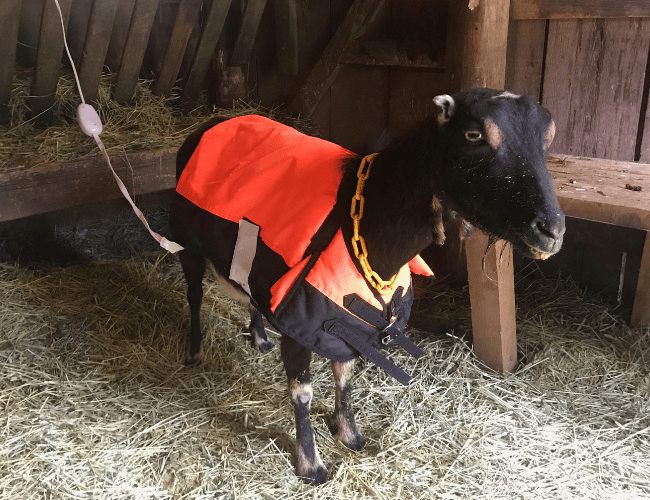

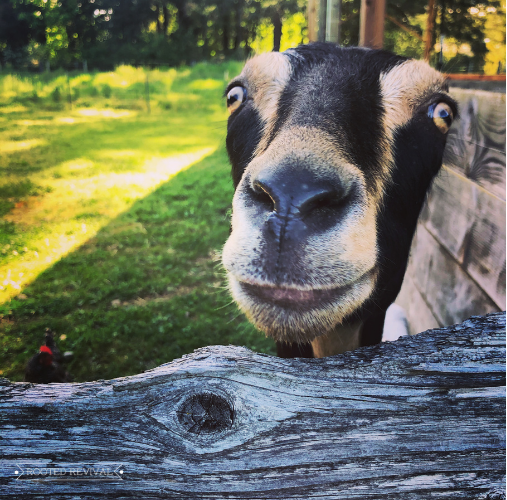
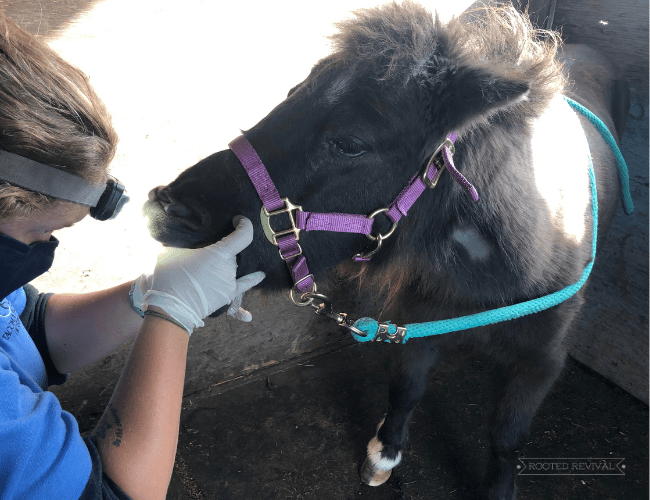
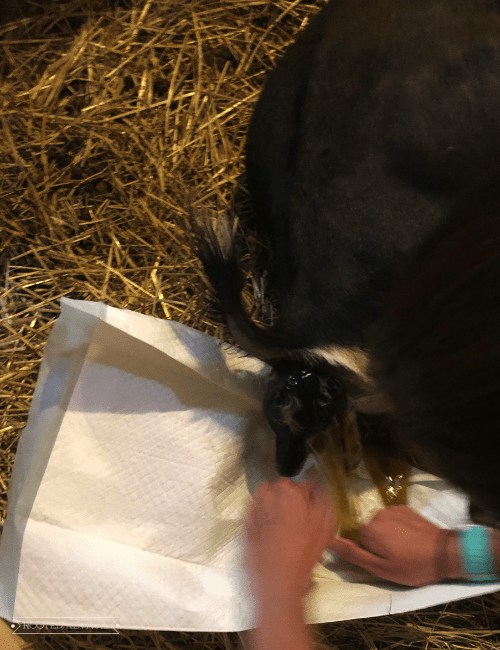


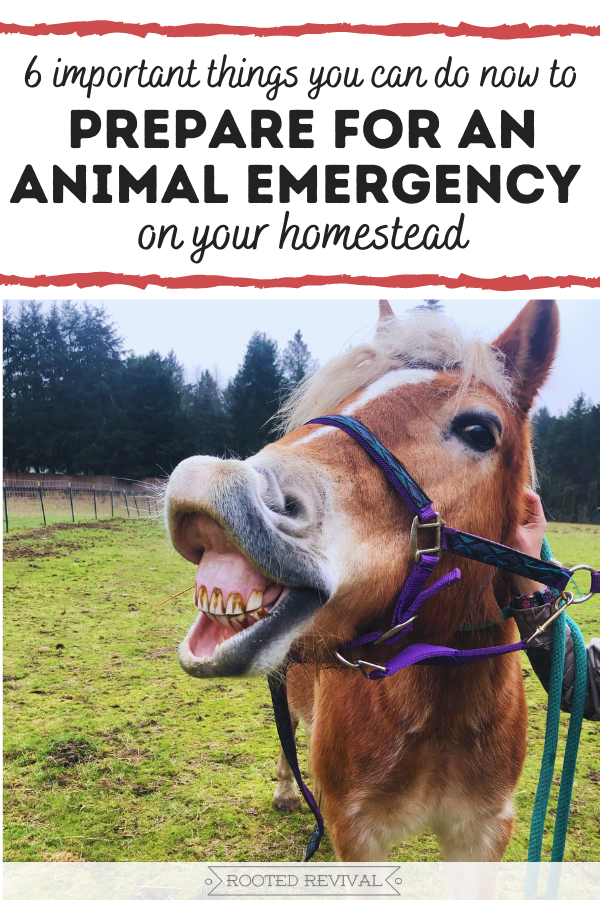
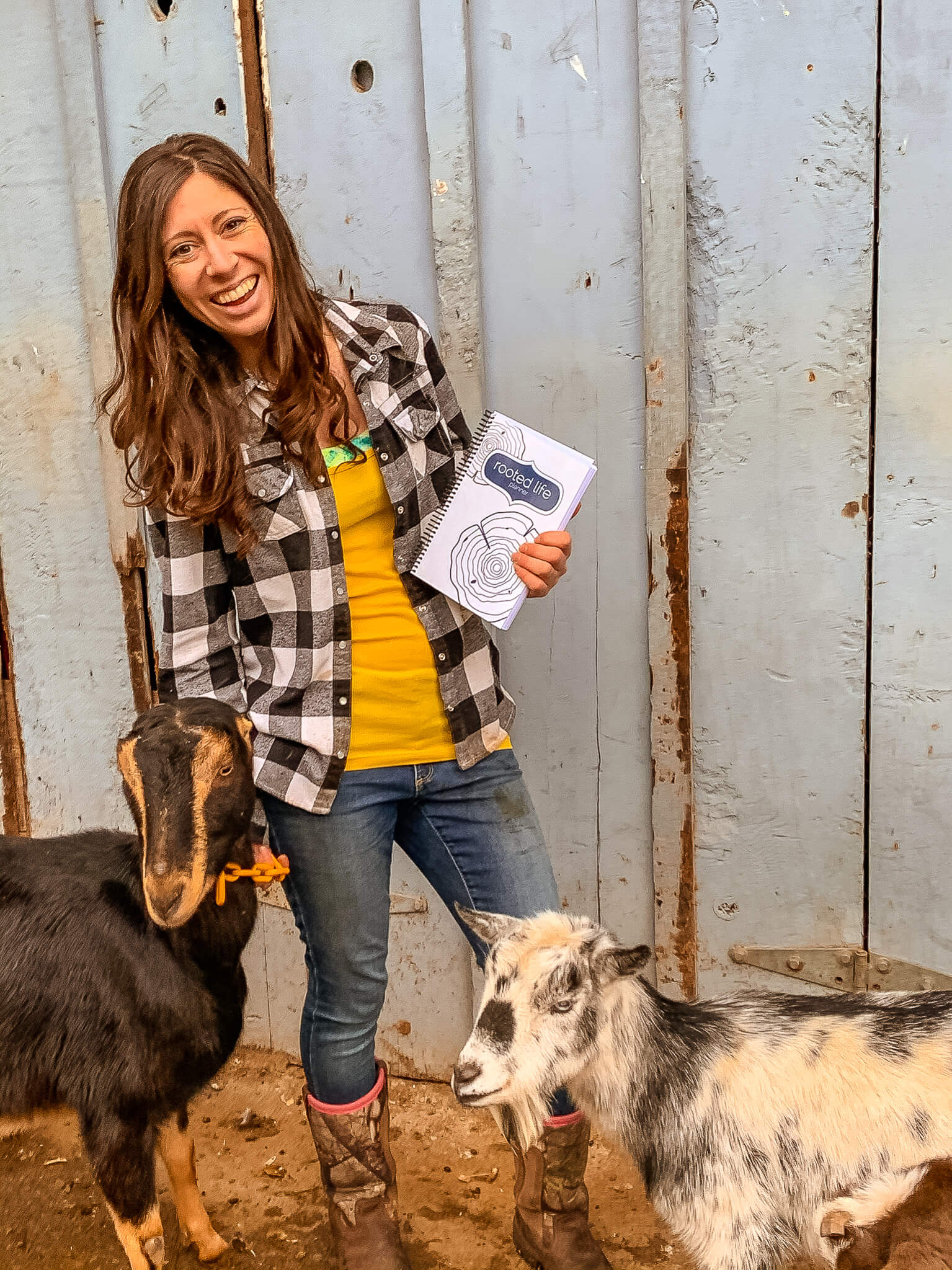
Lori
Thursday 28th of October 2021
I am so thankful for this post. We have a plan and I was fretting over this part of it. We bought 10 acres in TN and plan on moving there in 3 years and establishing a "retirement home" of sorts for animals. I want to be a resource where the skittish horse no one wants, the cow that doesn't produce milk, the 3-legged donkey... whatever ... can come and have a peaceful rest of their lives. But I know dogs, not livestock, and I've been worrying about just where to start. I'm going to print out YOUR information and start that binder you suggested. And I'm going to fill it with all the info I can find from your tips and resources and then find some more. THANK YOU!
Rooted Revival
Friday 5th of November 2021
Thank you so much for your kind response! I love that you are creating a "retirement home" for livestock. It's such a needed thing - so many amazing animals out there who need some extra care! And I'm so glad to hear that you are going to start compiling your information and learning now. The nice thing about livestock (large animals) is that a lot of the practices, medications, etc. carry over from one breed to another. Now, of course there are nuances, but a lot of it is rather consistent. Honestly, we will always be learning! None of us will ever be 100% ready 100% of the time. But taking the first steps is huge! I wish you the best with everything! Keep in touch and let us know how your adventure goes! :)